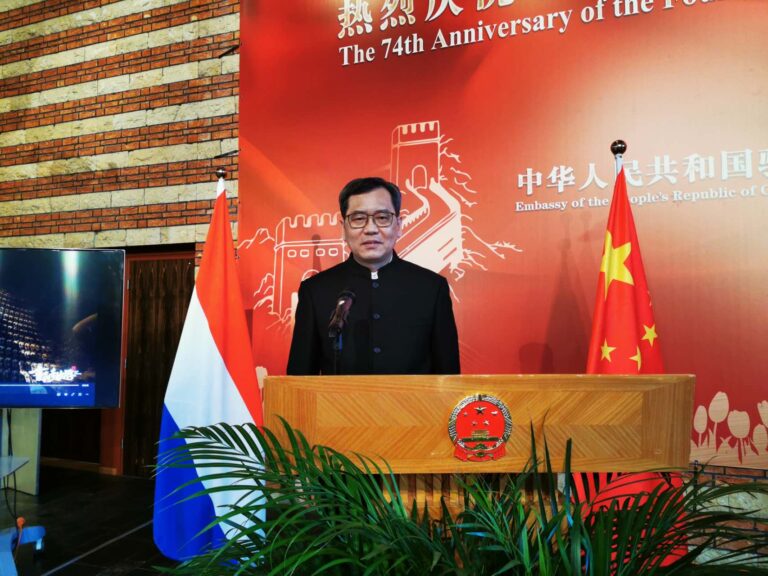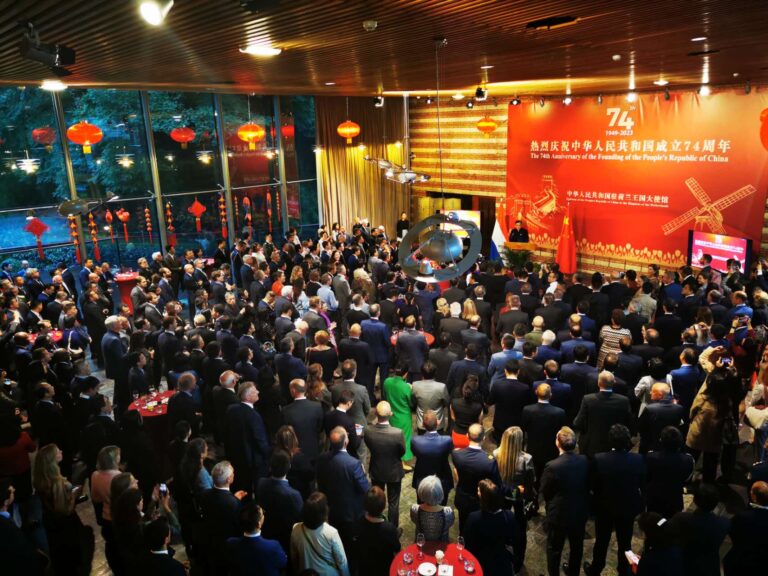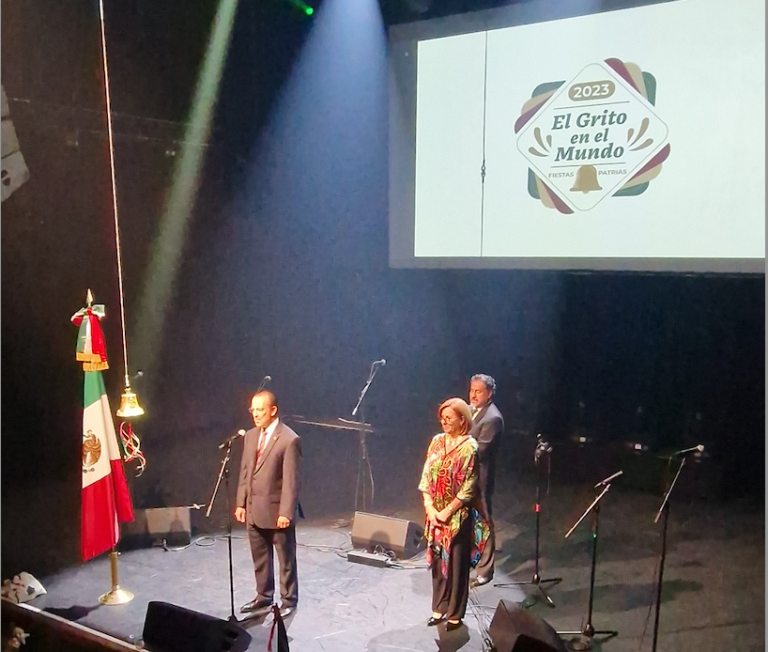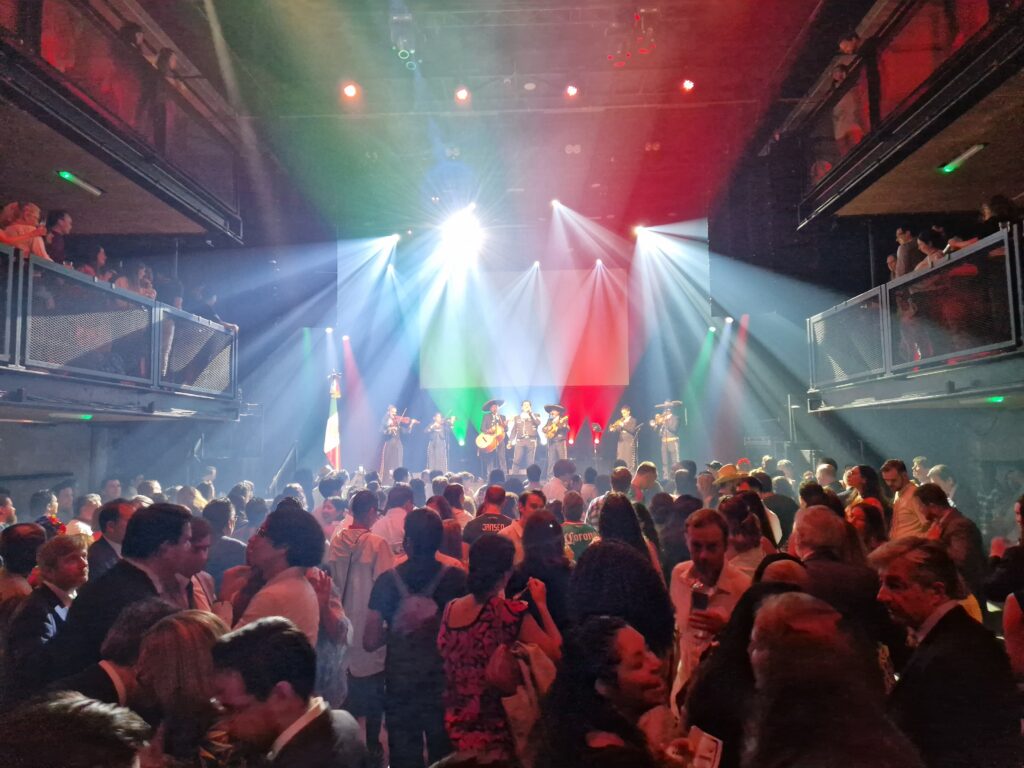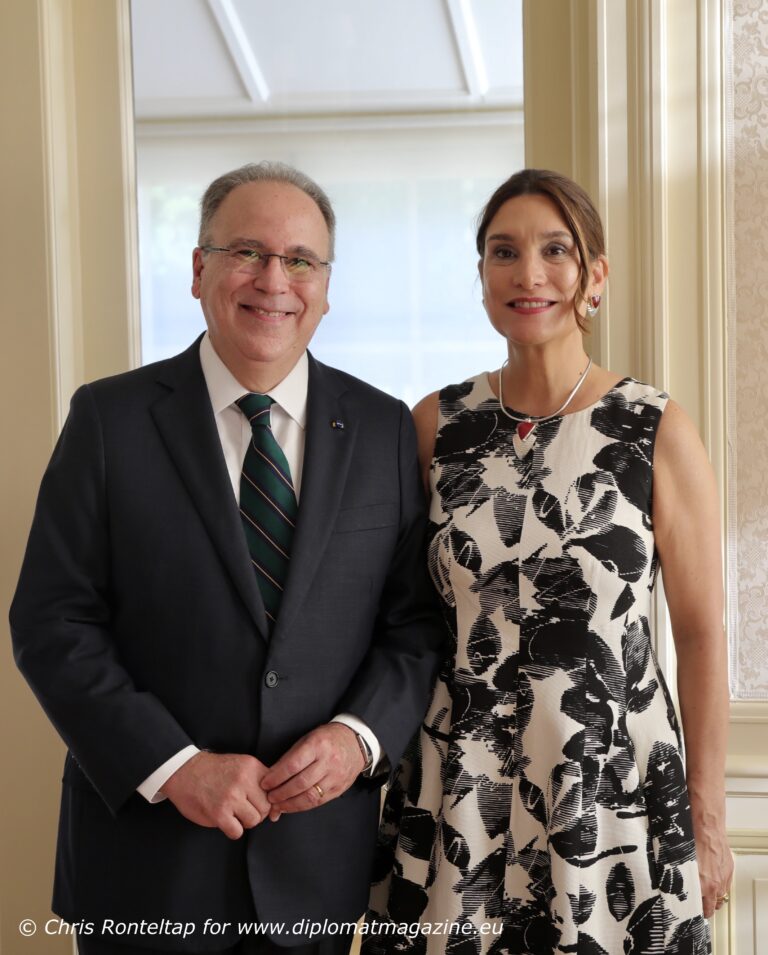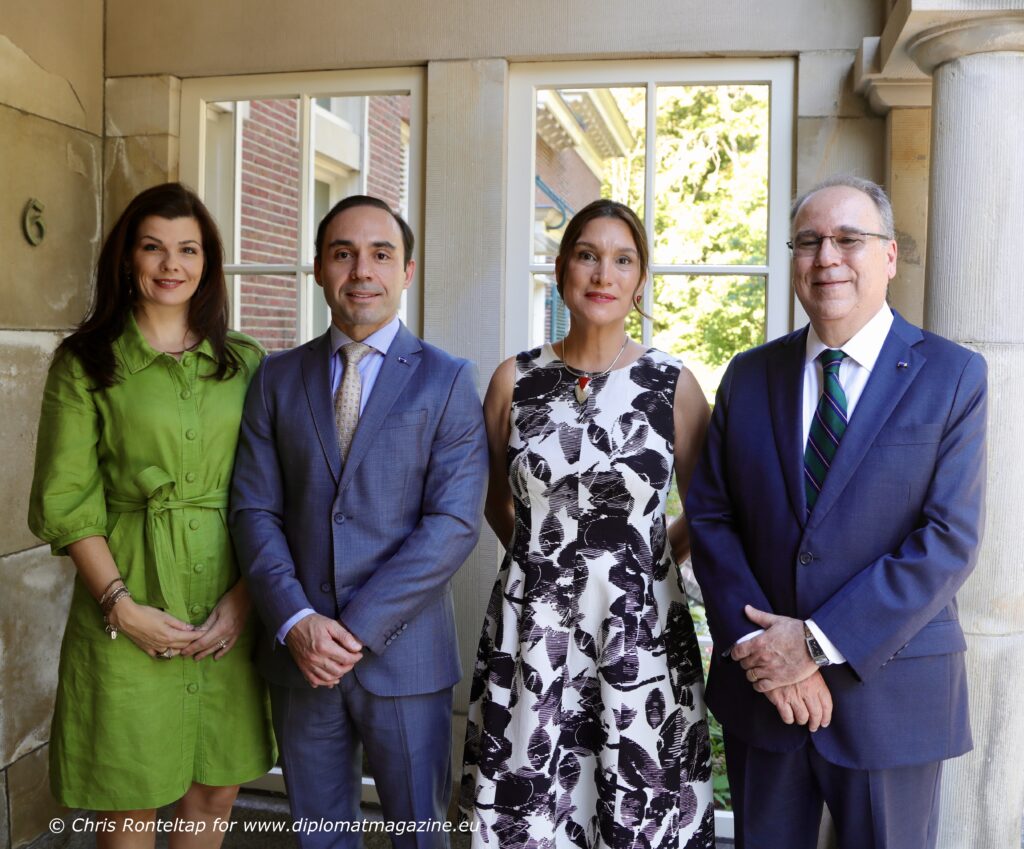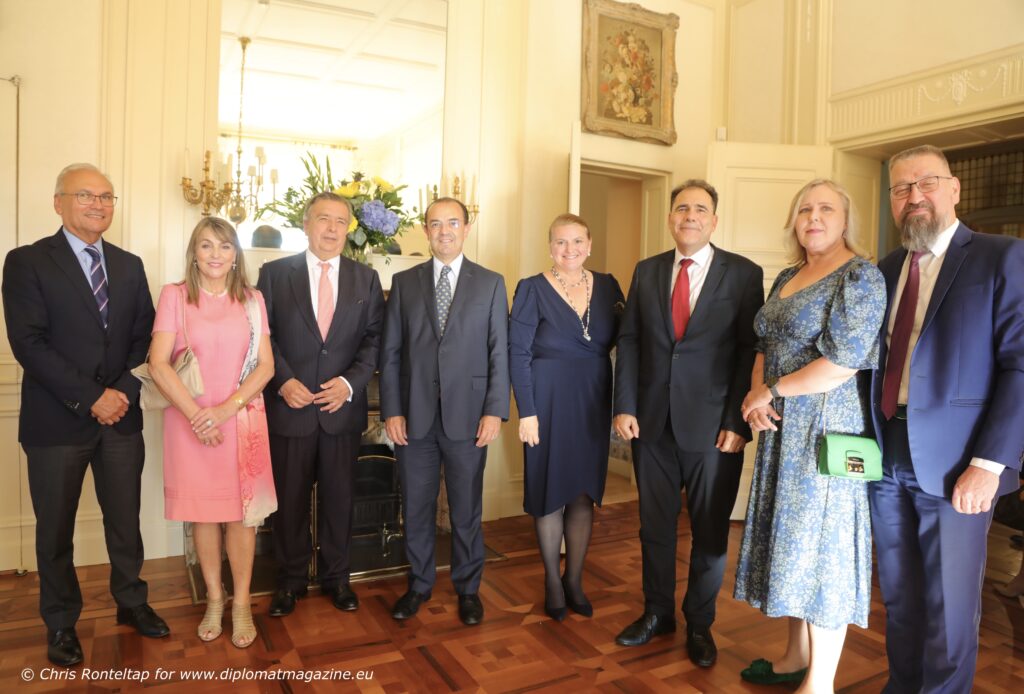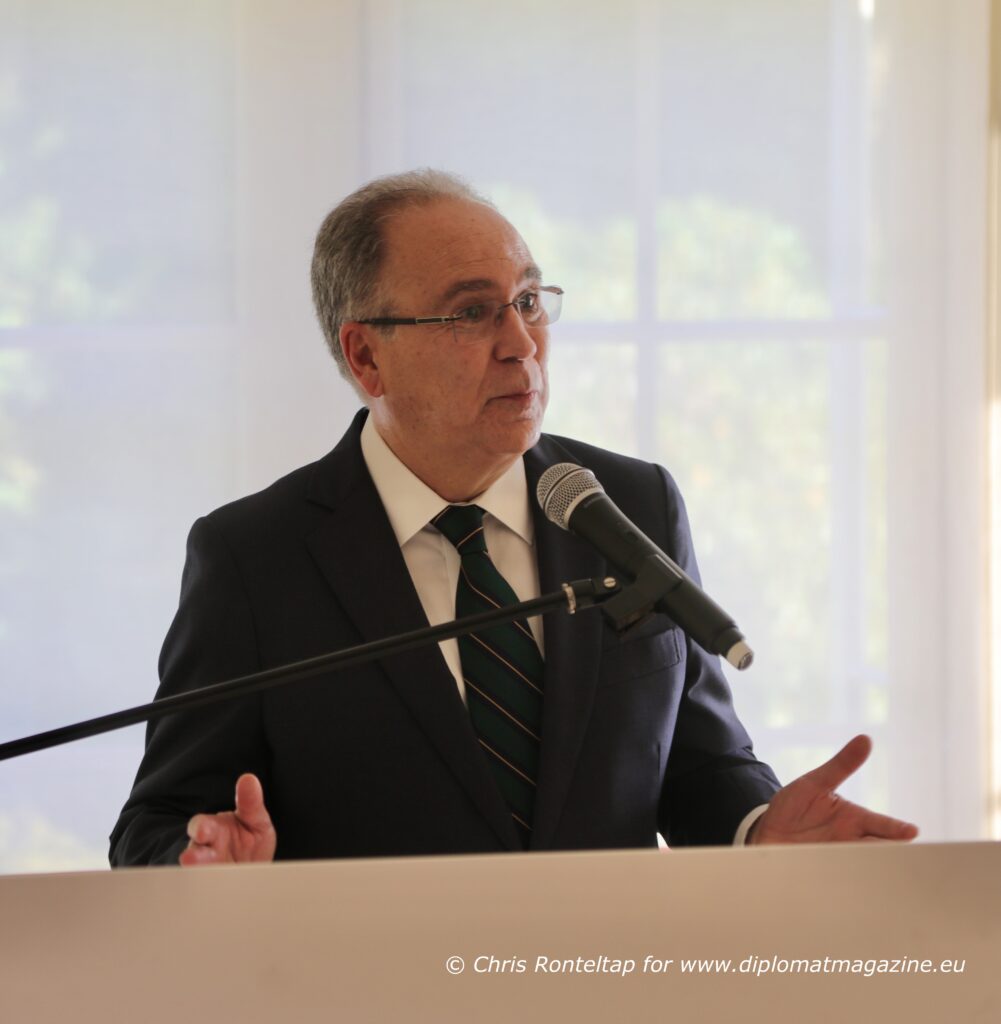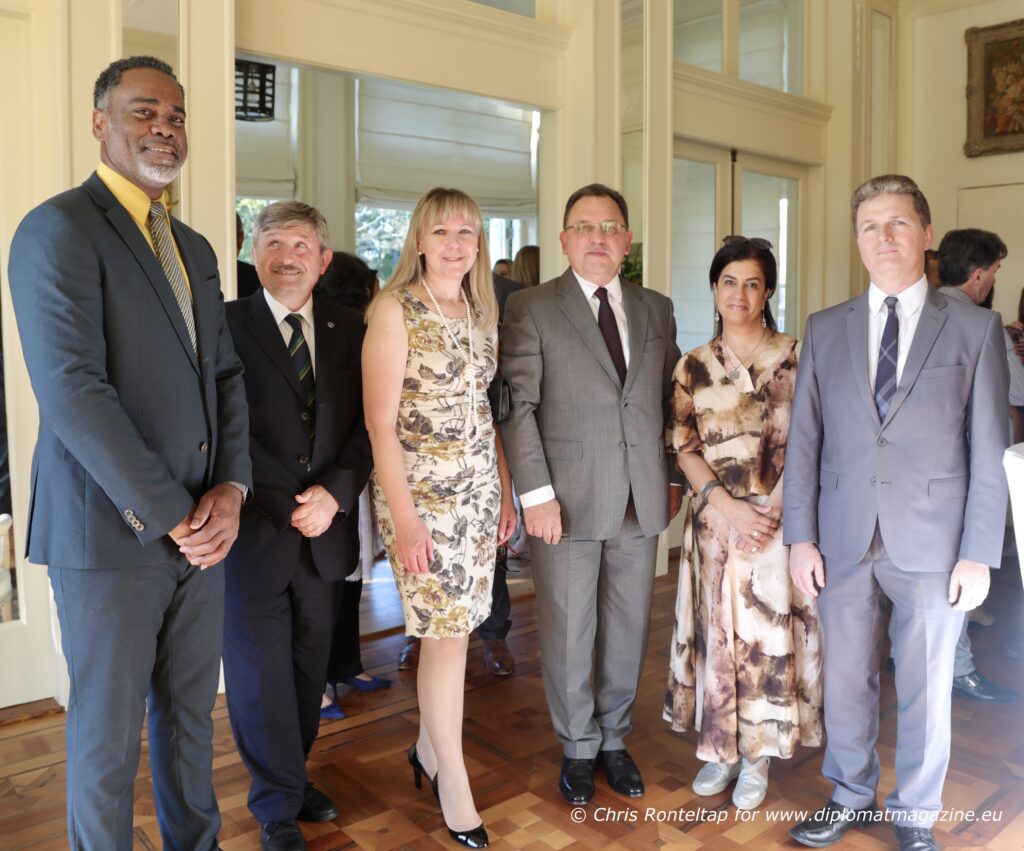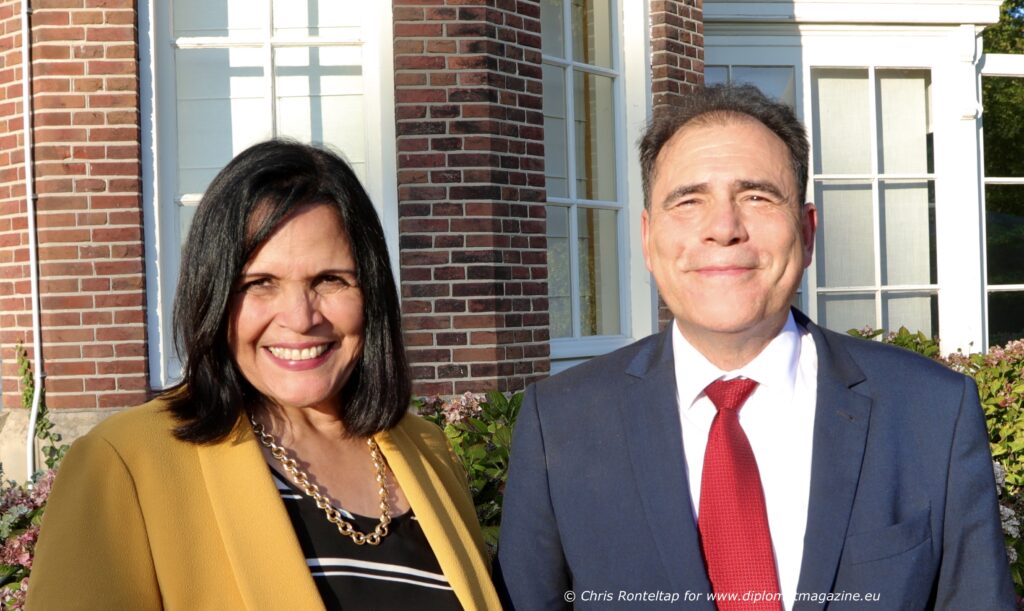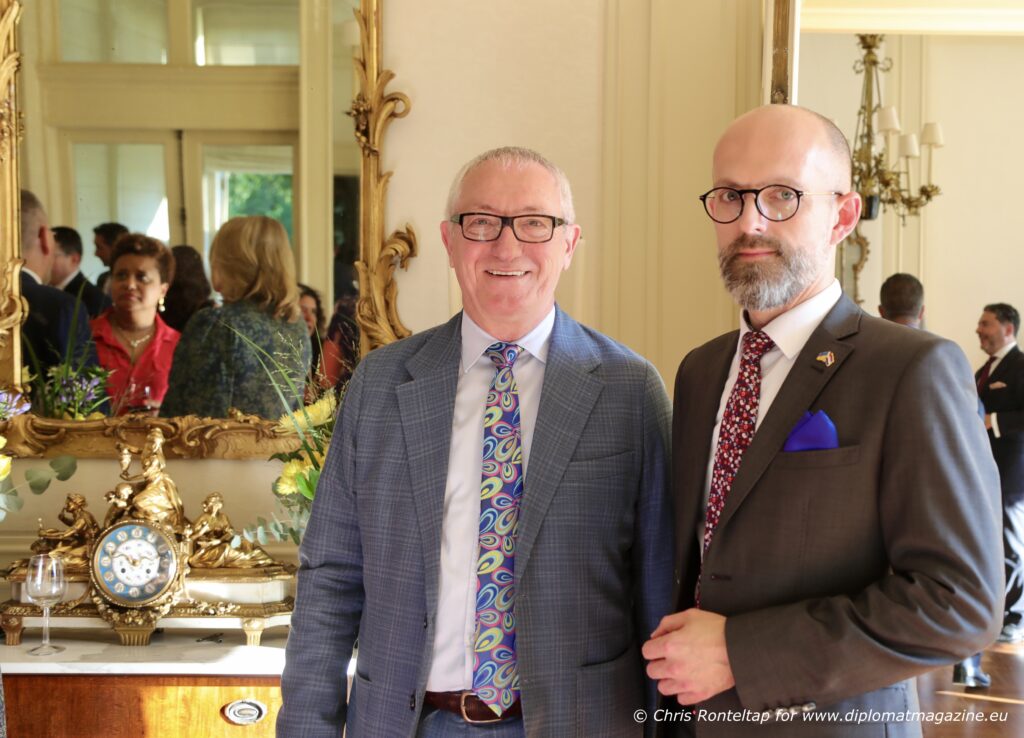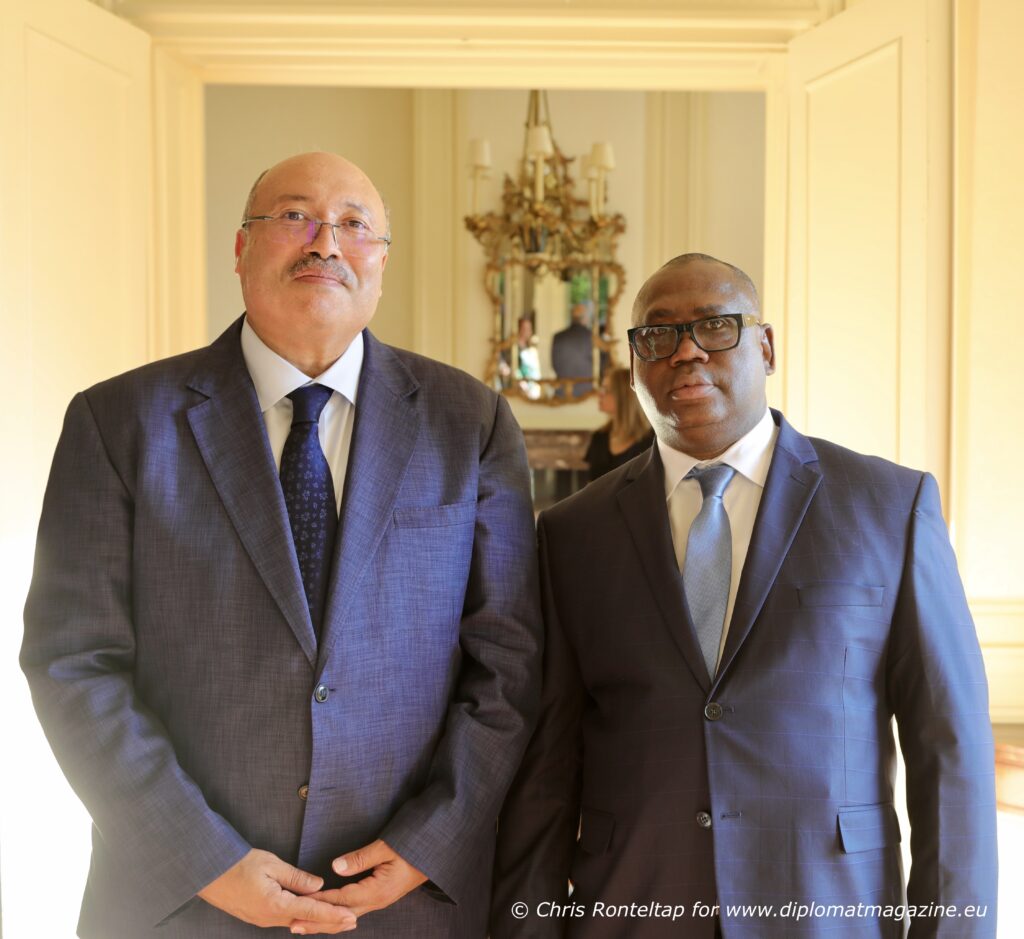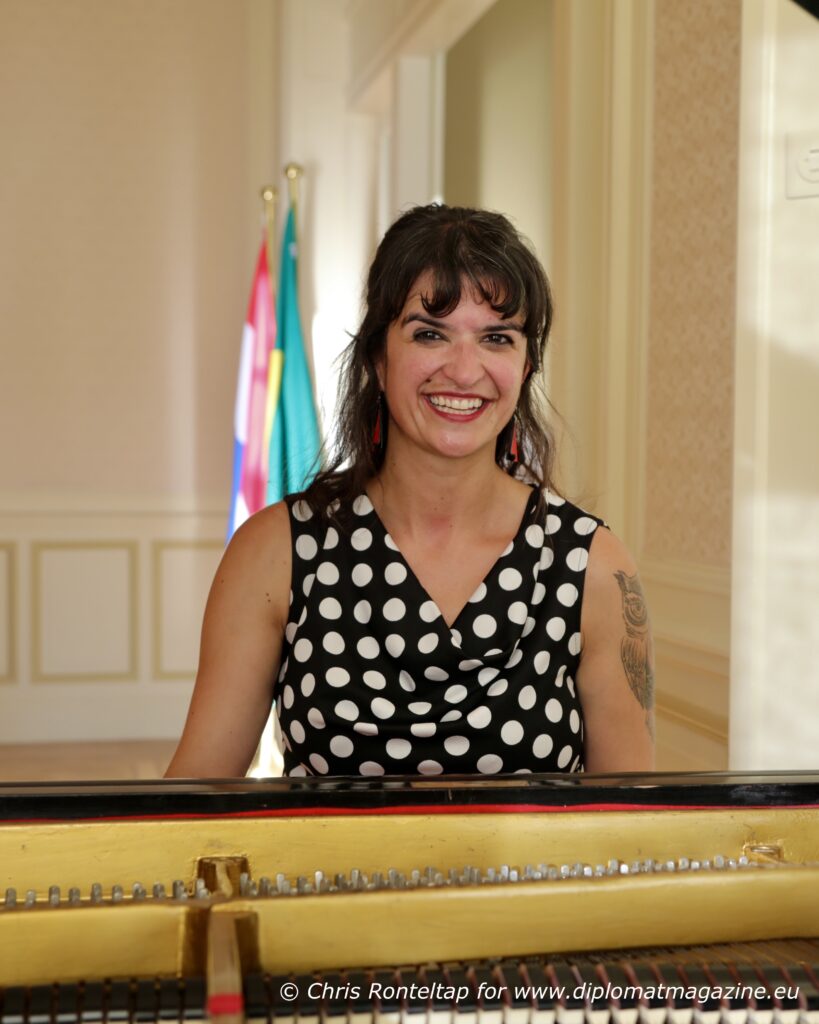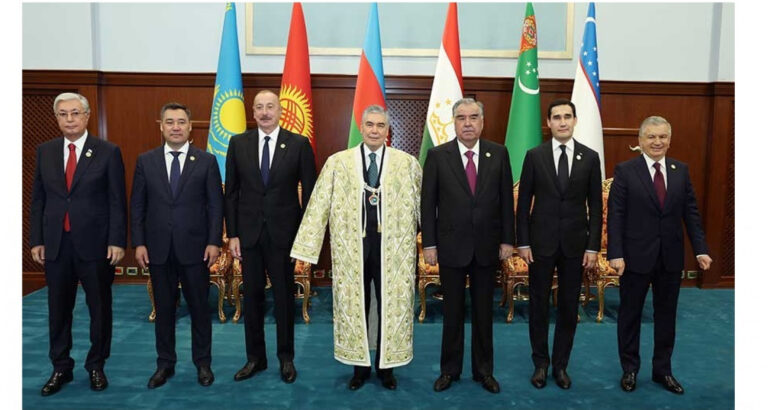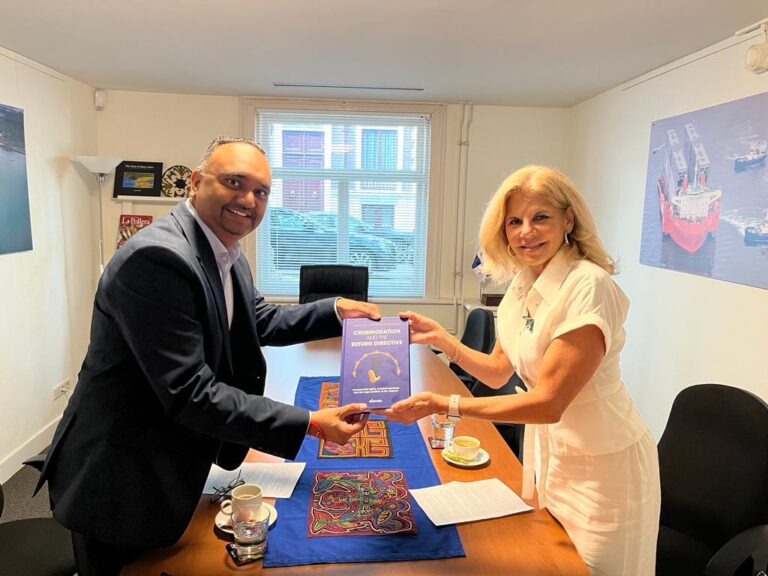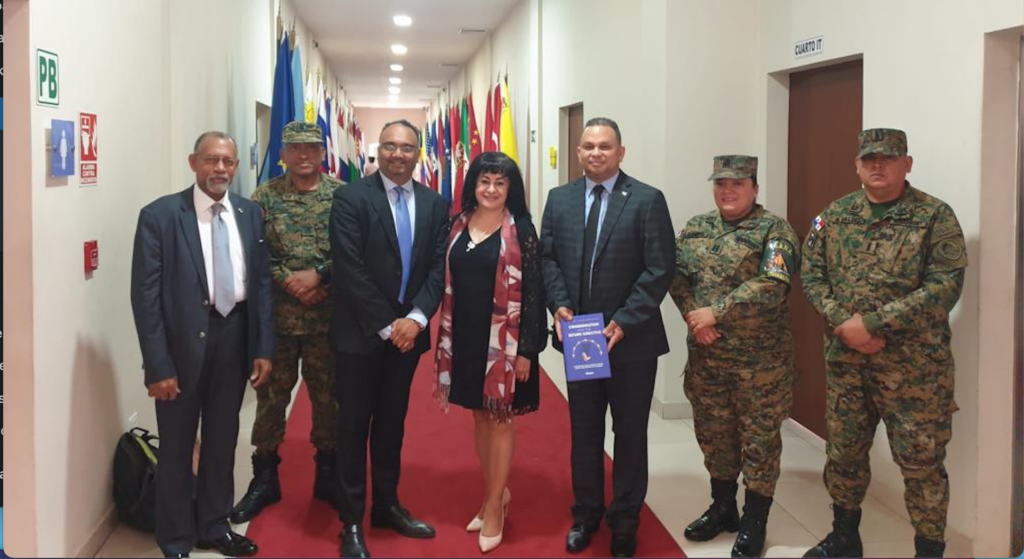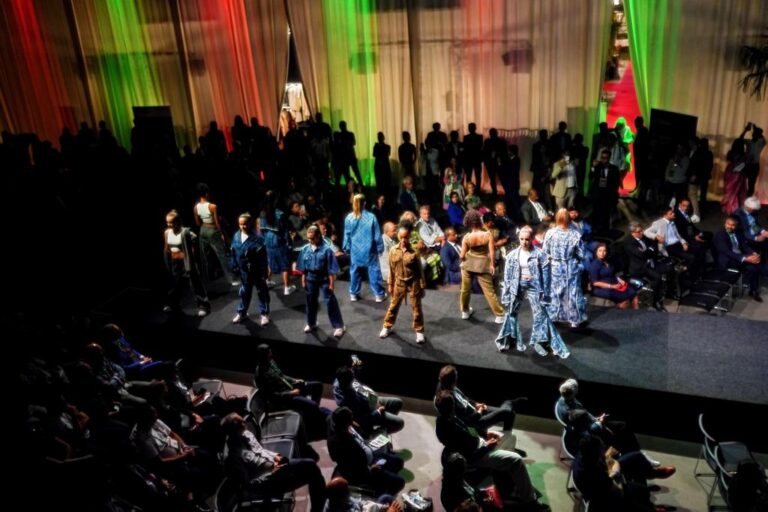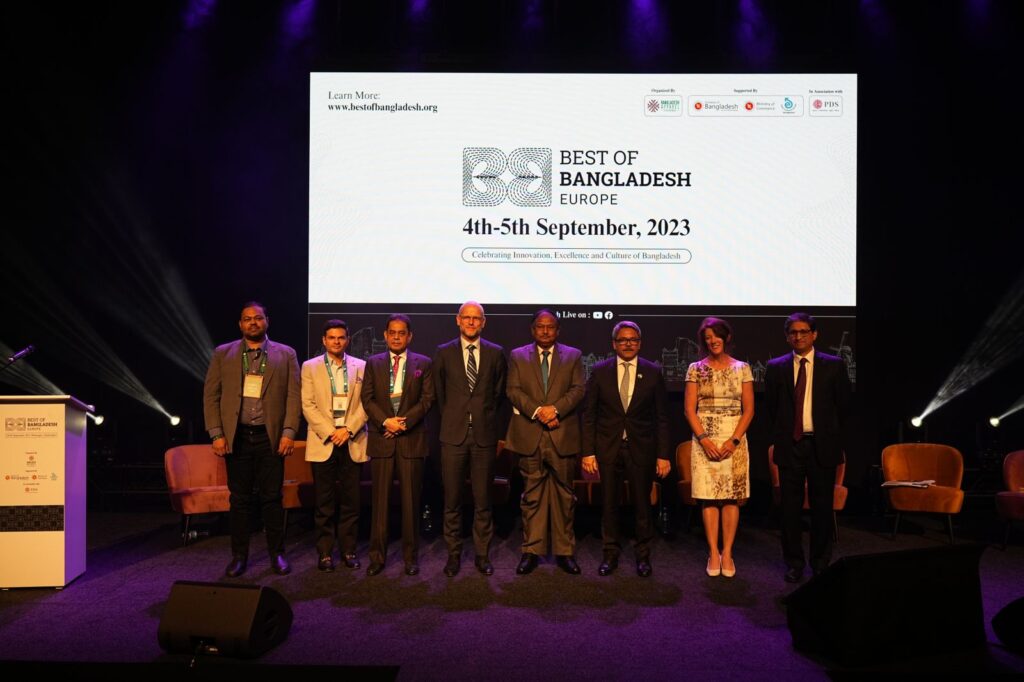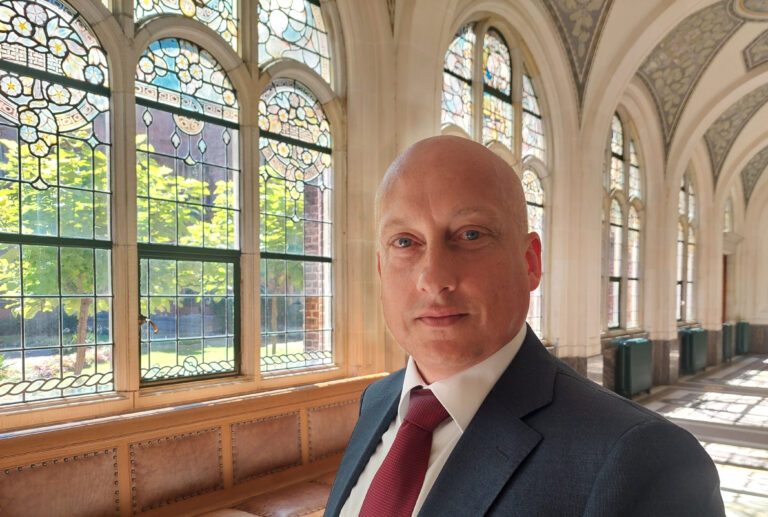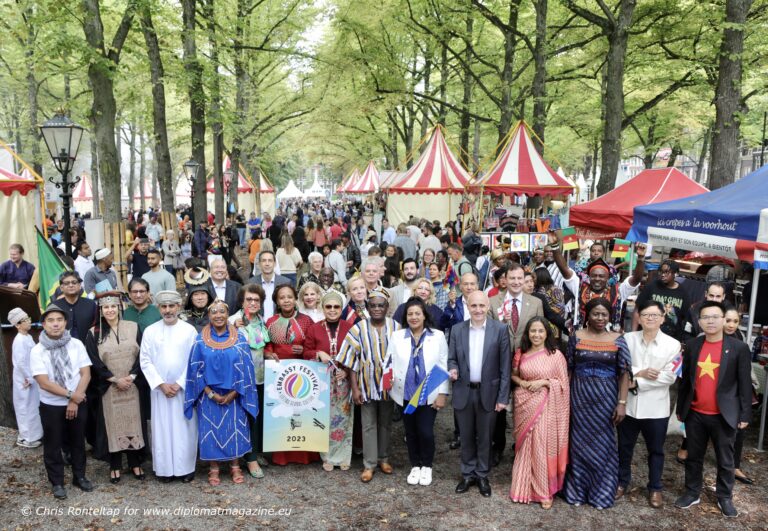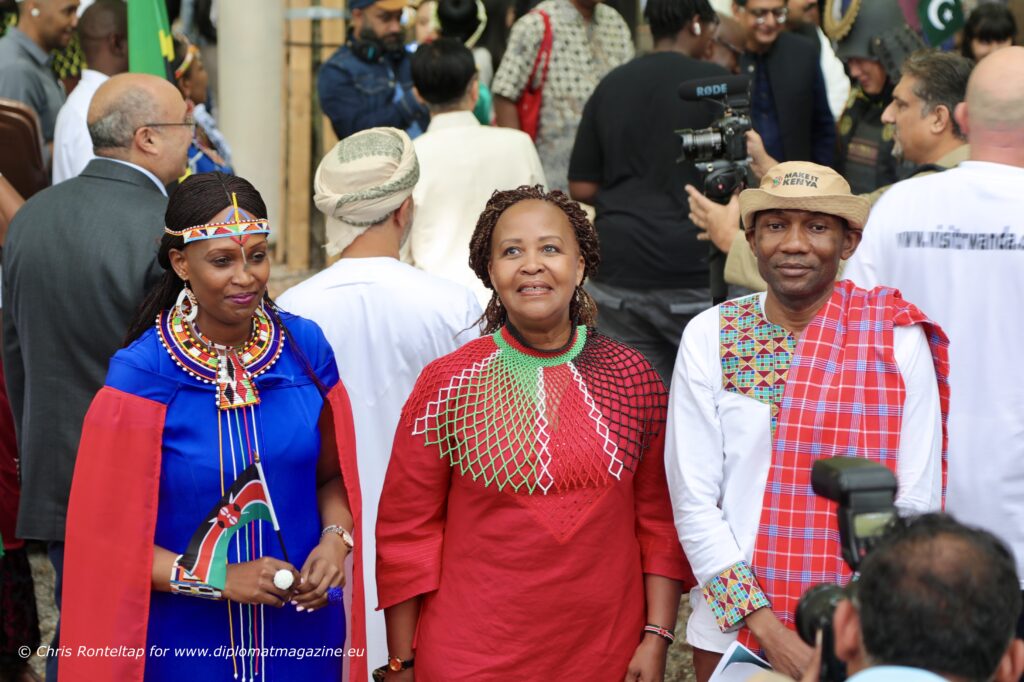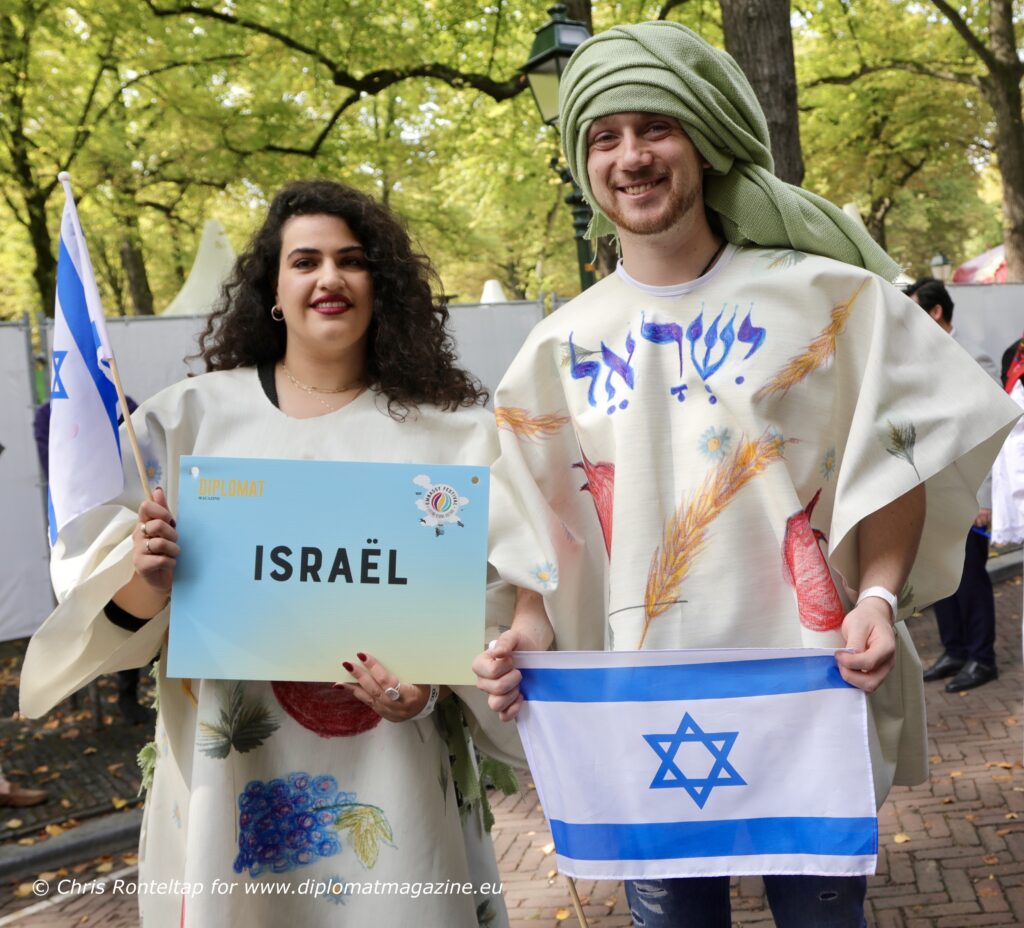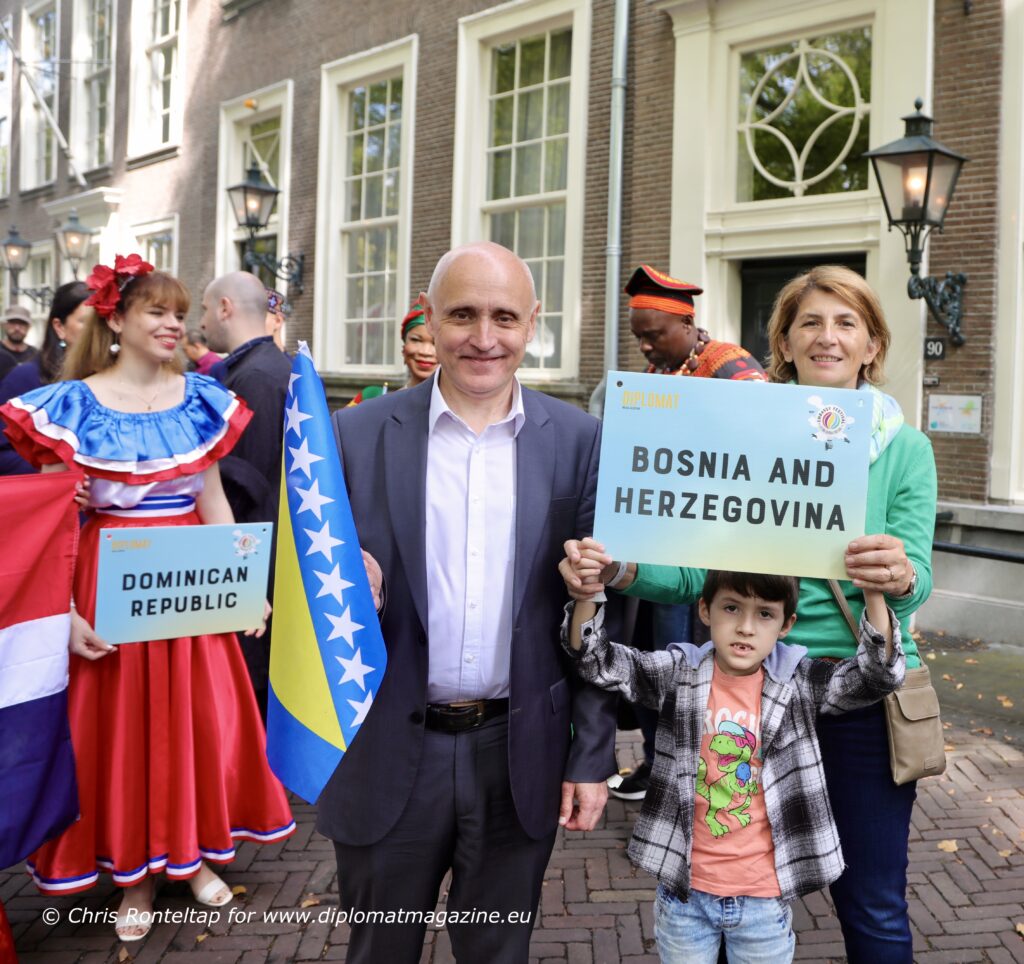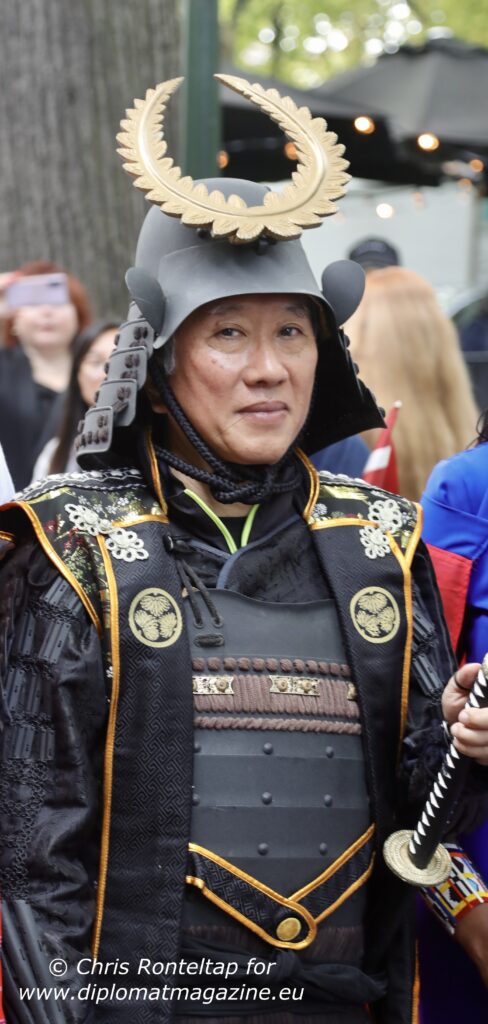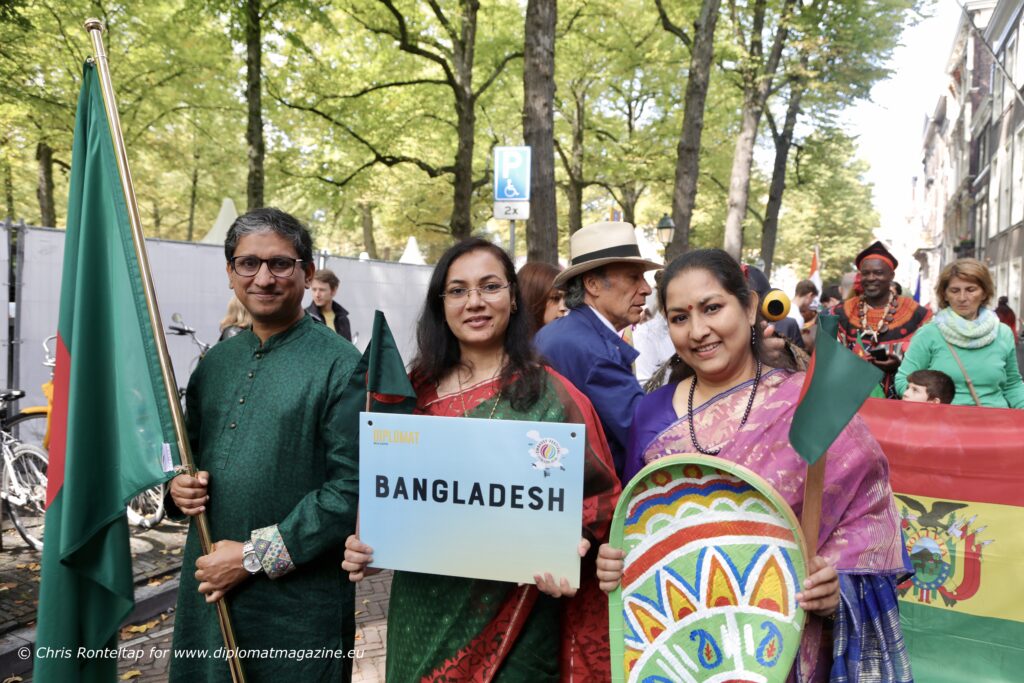On the occasion of the 74th Anniversary of the founding of the People’s Republic of China, Ambassador Tan Jian delivered a thought-provoking speech during a multitudinous reception at the China Embassy in The Hague on September 21, 2023. His address was not only an opportunity to celebrate this significant milestone but also to shed light on China’s stance on international politics and its bilateral relations with the Netherlands.
“Our world today is confronted with unprecedented challenges, like climate change, which require unprecedented cooperation,” Ambassador Tan emphasized. He highlighted China’s unwavering commitment to peace, development, and cooperation on the global stage, stating, “China is for peace, for development, for cooperation; China is for globalization, for multilateralism, for free trade.”
The Ambassador then delved into President Xi Jinping’s visionary initiatives, such as the Belt and Road Initiative and the Global Development Initiative. He stressed that these initiatives were not driven by geopolitical competition but rather aimed at fostering global cooperation.
In addressing global challenges like rising sea levels, Ambassador Tan stressed the importance of a stronger sense of community for a shared future, stating, “We are in the same boat.”
Ambassador Tan acknowledged China’s significant contributions to international organizations, including being the second-largest contributor to the UN regular budget and peacekeeping budget. He also noted China’s commitment to disarmament, saying, “China is the second largest contributor to the budget of the Organization for the Prohibition of Chemical Weapons.”
Reflecting on his mission’s work over the past three years, Ambassador Tan emphasized the importance of promoting bilateral relations and multilateral cooperation, with the key message being that “China is part of the solution, not part of the problem.”
As the speech coincided with the International Day of Peace, Ambassador Tan expressed China’s deep love for peace, citing historical examples such as the construction of the Great Wall for defense, not aggression. He also highlighted China’s maritime expeditions led by Admiral Zheng He, which occurred 87 years before Christopher Columbus’ journeys, with no colonization efforts.
Addressing concerns about technology, Ambassador Tan acknowledged China’s role in the invention of gunpowder and emphasized the importance of responsible regulation. He said, “Seriously speaking, looking back at the one thousand year’s history, I could not recall that China has done anything harming the interest of Europe.”
Regarding bilateral relations between China and the Netherlands, Ambassador Tan celebrated the long history of contact between the two nations, tracing back over 400 years. He noted the substantial growth in trade volume, from $69 million in 1972 to over $130 billion in 2022, highlighting the Netherlands’ position as China’s second-largest trading partner within the EU.
The Ambassador also underscored the strong economic ties between the two nations, with the Netherlands being the largest destination of Chinese investment among all EU countries. He reiterated the open and pragmatic partnership for comprehensive cooperation, defined by President Xi Jinping and King Willem-Alexander in 2014.
In closing, Ambassador Tan expressed optimism about the future of China-EU relations and emphasized China’s commitment to maintaining open channels of communication and cooperation at all levels. He stated, “China will continue to promote exchanges at the levels of leaders, ministers, senior officials, and we will reach out to the people and local governments.” Ambassador Tan’s speech conveyed China’s dedication to international collaboration and its aspirations for a peaceful and prosperous future.
Remarks was given by Ms. Yvette Van Eechoud, Deputy Director General of Foreign Economic Relations of MFA.

